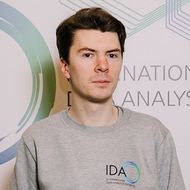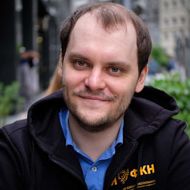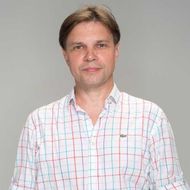New Labs to Open at Faculty of Computer Science

Based on the results of a project competition, two new laboratories are opening at HSE University’s Faculty of Computer Science. The Laboratory for Matrix and Tensor Methods in Machine Learning will be headed by Maxim Rakhuba, Associate Professor at the Big Data and Information Retrieval School. The Laboratory for Cloud and Mobile Technologies will be headed by Dmitry Alexandrov, Professor at the School of Software Engineering.
The Research and Educational Laboratory for Matrix and Tensor Methods expands the range of areas represented at the faculty related to the theoretical foundations of machine learning. It will develop mathematical modelling methods and use them to solve applied problems, such as creating recommender systems.
The Research and Educational Laboratory for Cloud and Mobile Technologies will conduct research on the creation and development of companies’ IT infrastructure, including high-load systems. The areas of mobile and cloud development have existed at the faculty since its founding, but previously, they were largely represented by academic disciplines and applied projects.
Research in these areas will now receive additional support from the faculty and the university, and research teams will have an additional degree of responsibility for the results.
Alexey Mitsyuk, Deputy Dean for Research and International Relations at the Faculty of Computer Science, expressed hope that the new laboratories will actively attract undergraduate and graduate students of the faculty to scientific work, expand, and conduct both fundamental research and applied projects.

‘Both laboratories will work in extremely relevant areas: machine learning theory and cloud and mobile technologies. I believe it is important that the field of research for both laboratories is not purely theoretical, but implies the possibility of implementing the results of research work in practice. I hope that the future of both laboratories will be successful,’ said Alexey Mitsyuk.
The heads of the new laboratories spoke in detail about current tasks and plans.

The main field of work for the Laboratory for Matrix and Tensor Methods in Machine Learning is related to the development of new computational algorithms for linear and multilinear algebra and their applications.
I will talk briefly about matrices and their multidimensional analogues (tensors), which appear in the laboratory name. With their help, input data can also be presented—digital images in computer vision tasks or user ratings of films in recommender systems, as well as machine learning models themselves, for example, the trained parameters of neural networks. Despite the contexts being so different in nature, these matrices usually need to perform similar operations involving elementary operations (addition, multiplication) or their decomposition into simpler components.
It is important to understand that, in modern applications, these matrices can be very large due to the rapid growth in the volume of data and the models that process this data. Therefore, there is often the need to speed up the training and performance of high-fidelity models or reduce their size so that they can run on, say, smartphones and other resource-constrained devices. At the same time, you should not wait several years until the hardware becomes powerful enough, because the most effective algorithms themselves provide a significant increase in performance. In turn, more efficient computing opens access to more complex problems, and in this sense, it seems that there will always be a demand for developing algorithms to improve computing efficiency.
Currently, we focus on the development and implementation of Riemannian optimisation methods, as well as randomised linear algebra algorithms. Both of these areas are now actively developing. For the algorithms being developed, we plan to write a code that can be run on graphics accelerators and used for various applied tasks. For example, we are now finishing work on algorithms that use the structure of the variety of multi-rank tensors to search for links in knowledge bases.
The methods we develop have a wide range of applicability, so it is of significant interest for us to collaborate with other laboratories at HSE University and other universities that work on specific applications or have expertise in related topics. For example, we are already actively collaborating with the International Laboratory of Stochastic Algorithms and High-Dimensional Inference (HDI Lab) in the development of randomised linear algebra algorithms, where their expertise in probability theory and statistics is very valuable.
I have dealt with computational mathematics for over ten years. Now I would like to combine the experience gained at the Moscow Institute of Physics and Technology, Skoltech, and the Swiss Federal Institute of Technology Zurich so that the research result is a working algorithm that is convenient to use. At the same time, we want to understand the limits of its applicability and possible pitfalls.
We are interested in attracting students who are primarily interested in the applications of linear algebra. In the laboratory, you can both gain knowledge in the field of theoretical analysis and develop algorithms and efficient code, or use matrix techniques in your favourite application.

The Laboratory for Cloud and Mobile Technologies is being created at the School of Software Engineering within the Faculty of Computer Science. Its main intended focus is to identify best practices to reduce the development time of client-server solutions, improve programme testability, and increase programme productivity.
The laboratory will focus on three main areas:
the implementation of cloud server software systems with databases capable of withstanding high loads from client applications
native and cross-platform mobile application development
technologies for creating web applications
The IT industry is developing very rapidly. New development tools are constantly appearing, especially in the field of creating mobile applications. The results of the laboratory’s research will significantly improve the quality of academic disciplines taught at the Faculty of Computer Science.
We invite senior students of the Bachelor’s programme in Software Engineering, as well as students of the Master’s programme in System and Software Engineering, to the laboratory. They will be offered research tasks related to studying various programming languages, individual elements of their syntax, and their comparative analysis for their ease of use and effectiveness at solving typical applied tasks in creating company ecosystems.
In addition, as part of the laboratory, students will be asked to explore widely used industrial technologies for creating software in order to form best practices for its development in terms of automating teamwork processes and the use of design patterns.
We would like to find high-tech IT companies that will be interested in long-term cooperation—in particular, in conducting joint exploratory research, training highly qualified specialists, and creating a joint virtual platform for prototyping and solving interesting research and applied problems. We are also open to cooperation with other HSE University departments, including participation in interesting joint projects where our competencies in the field of software creation will be in demand.

